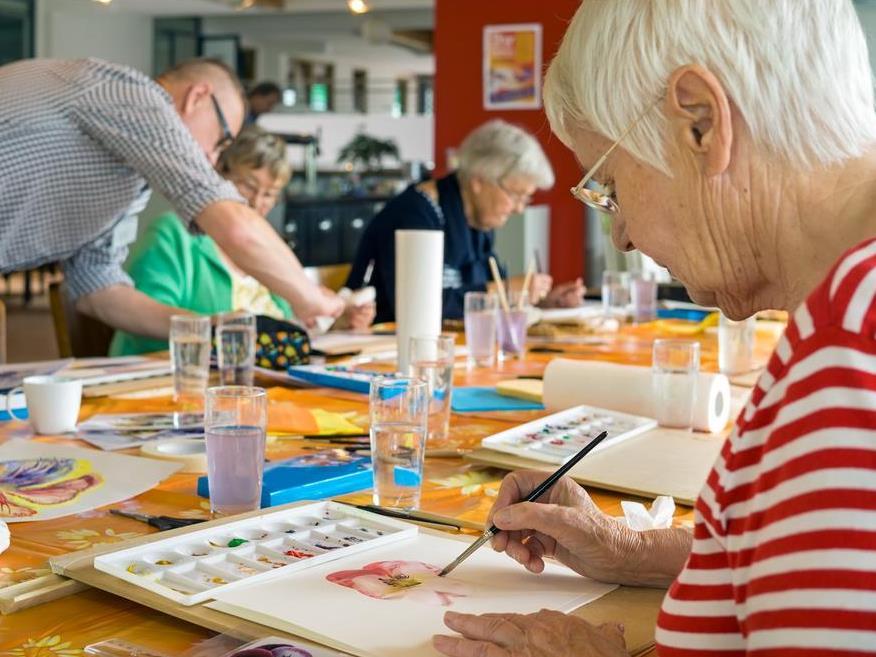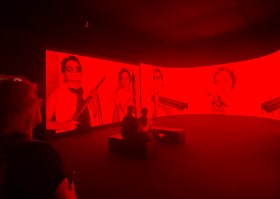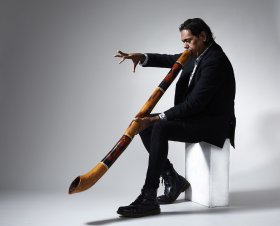Image by Shutterstock
You don’t need to be an accomplished artist to become an art therapist. Students in art therapy at the IKON Institute of Australia have a range of backgrounds and motivations for training in the discipline.
‘Our students come from all walks of life but have a common interest in wanting to help others. Many are definitely combining their arts passion with helping others,’ said Kathy Swaffer from IKON.
‘Others are looking for career progression, while some are attracted to our genuine community of people who are seeking a more meaningful way of living which involves healing.
‘Some have experienced art therapy as a client, and now want to help others.’
Art therapists work with people in counselling, community and health care environments to assist in creating change and overcoming difficulties. Like other non-verbal and expressive approaches, such as drama, music and play therapy, art therapy works by moving beyond conscious thought to tap into deeper issues, in a safe and nurturing environment.
Arts therapy is a recognised evidence-based therapeutic tool, and has been used worldwide in mental health treatment. Art therapists helped children cope with the trauma of the Fukushima nuclear disaster, have provided cross-cultural grief support for child survivors of the Sri Lankan Tsunami, and helped Syrian refugees process trauma and regain hope.
The IKON Institute is Australia’s largest provider of nationally accredited Art Therapy training, offering VET and Higher Education qualifications including an Advanced Diploma of Transpersonal Art Therapy and a Bachelor of Arts Psychotherapy.
Art therapy can be used to treat a range of mental and emotional issues, and explore issues such as life changes, identity and relationships. An art therapist will encourage a client to use tools such as painting, drawing, sculpture, collage and sand play to express and awaken deeper emotions.
Read: Career spotlight: art therapist
At IKON, students learn through a range of modes, including face to face learning in a classroom, self-directed education, and field placement. Some elements of the course are offered online, making modules accessible and flexible for students.
‘We put a large value on the classroom component, as its essential to learn from people, when learning to work with people in the capacity of a therapist,’ said Swaffer. ‘We won’t cut corners by offering our qualifications online in their entirety. The classroom support that our students also receive from specialised trainers – who are practicing therapists themselves – as well as other students is also highly valued.’
Art therapy courses covers the history of art therapy, paradigms of mental health and counselling techniques. The Advanced Diploma of Transpersonal Art Therapy includes a 100 hour clinical placement in an appropriate workplace, where students have direct experience in service delivery.
Rebekah Popescu is a graduate of the Graduate Diploma of Arts Psychotherapy course, and values the expertise of the course instructor. ‘The instructors offer their expertise in a way that resonates with me through discussions, experiencing the art process and group work with the other students,’ she said. ‘Class contact is invaluable and the research we do along the way only adds more interest to the course.’
IKON Art Therapy graduates work in a range of positions, including providing complementary therapeutic services in social work, nursing and counselling. Art therapists also work as part of mental health teams within organisations dealing with homelessness, community services, palliative care and aged care.






